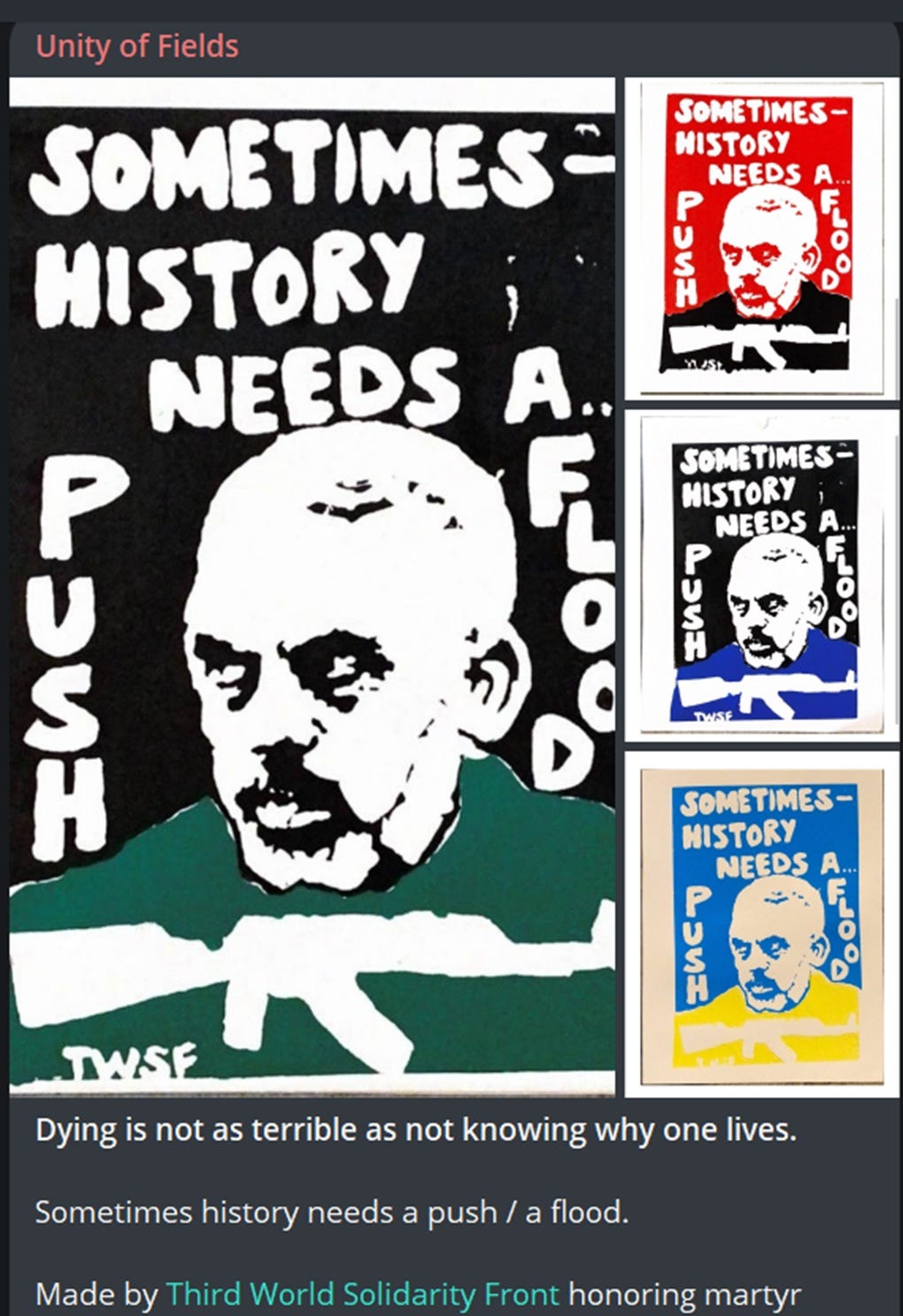State Department Outlaws Neo-Nazi “Terrogram Collective”
The move highlights the need to address Telegram, a hub for antisemitic and pro-terror incitement exploited by neo-Nazi groups and pro-Palestine extremists alike.

On January 13, the Department of State designated The Terrorgram Collective and three of its leaders as Specially Designated Global Terrorists.
In a press release, the department explained that the group primarily operates on the social media and messaging platform Telegram and has been linked to terrorist attacks across multiple countries.
“The group promotes violent white supremacism, solicits attacks on perceived adversaries, and provides guidance and instructional materials on tactics, methods, and targets for attacks, including on critical infrastructure and government officials. The group also glorifies those who have conducted such attacks,” the statement said.
This designation builds on a growing recognition of the threat posed by extremist groups using encrypted platforms. Just a few months earlier, in September 2024, the Department of Justice indicted two leaders of The Terrorgram Collective on 15 counts, including soliciting hate crimes, inciting the murder of federal officials, and conspiring to provide material support to terrorists. Together, these actions highlight the urgent need to address the exploitation of digital platforms by violent groups.
While this move represents a significant step in combating online extremism, the issue is far from resolved. Telegram, known for its encryption and limited content moderation, remains a hub for organizations that engage in and incite violence. Addressing white supremacist groups like The Terrorgram Collective is critical, but equally important is targeting other extremist organizations, including pro-Palestine groups that have crossed the line from advocacy into acts of violence and incitement, and mirror the same tactics and behavior that the Terrogram Collective does.
For example, Unity of Fields (which rebranded from Palestine Action US) has been linked to organized acts of vandalism, with some members facing incarceration for aggravated burglary, violent disorder and criminal damage. On its Telegram channel, the group has called for the collapse of the United States and posts other violent content. The group has been banned from Meta and X.

Across the Atlantic, the UK’s policing minister has warned that Palestine Action UK incites activists to “smash up businesses with sledgehammers.” These groups are not isolated cases; in New York City, the organization Within Our Lifetime has gained notoriety for violent attacks against Jewish individuals, resulting in prison sentences for some of its members. The group’s Telegram channel is littered with pro-terror content, encouraging people to violence.
Notably, the infamous Amsterdam pogrom, in which Jewish and Israeli soccer fans were attacked en masse by pro-Palestinian assailants, was coordinated in large part on Telegram.
Such incidents highlight the breadth of extremist activity that must be addressed on Telegram and similar platforms.
The misuse of Telegram is not limited to grassroots organizations. Officially affiliated media outlets of Hamas also use the platform to spread incitement and glorify violence. For instance, the Middle East Media Research Institute (MEMRI) documented that Hamas’ mouthpiece Al-Risalah posted a video on Telegram that features excerpts from a speech by now-deceased Hamas leader Yahya Al-Sinwar, in which he encouraged Palestinians to attack Israelis with knives, meat cleavers, or firearms, urging individuals to act independently as “lone wolves.”
The U.S. government’s action against The Terrorgram Collective is a welcome development in the fight against online extremism. However, to achieve meaningful progress, a broader approach is necessary. Tackling white supremacist and neo-Nazi groups is essential, but addressing the violence promoted by pro-Palestine groups is equally critical. These organizations, which exploit the same platforms to incite and glorify violence, must also face scrutiny. A comprehensive strategy that targets all forms of extremism, regardless of ideology, is crucial to curbing the misuse of platforms like Telegram and ensuring they are not weaponized for violent agendas.


